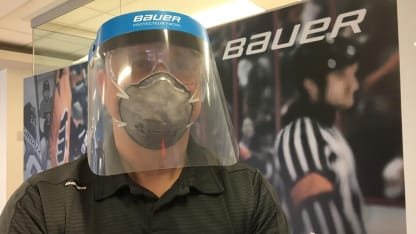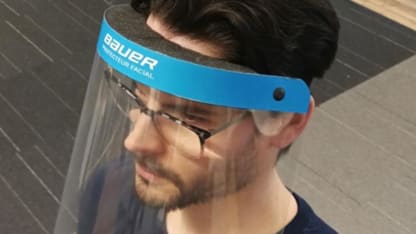"We're just so fortunate to have such a talented employee base that's also really passionate," Mary-Kay Messier, Bauer vice president of global marketing, said Wednesday. "Protecting athletes has been in our DNA, part of our heritage, since 1927. This is an opportunity to shift gears. This is a time that none of us has ever experienced before. You think about hockey being team first and then you also think about the greater community and how connected we are, I think this felt similar in that we needed to unite in this most uncertain time and [have] everybody pick up an oar and start rowing."
She said Bauer went from the initial brainstorming session to developing early prototypes in about four days.
"They do have the capacity to ramp up (very quickly)," said Messier, the sister of Hockey Hall of Famer Mark Messier.
"I wouldn't say it's easy, but it's doable, and when you have people that are really passionate and talented, you make it happen."
The protective shields are being made at Bauer's research and development facility in Blainville, Quebec, and its facility in Liverpool, New York, which primarily produces Bauer's lacrosse gear.



